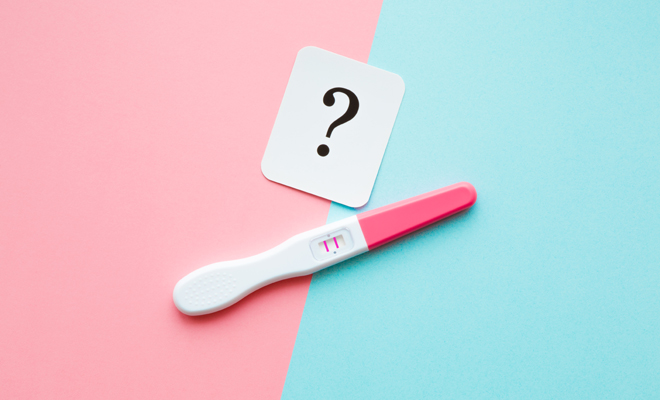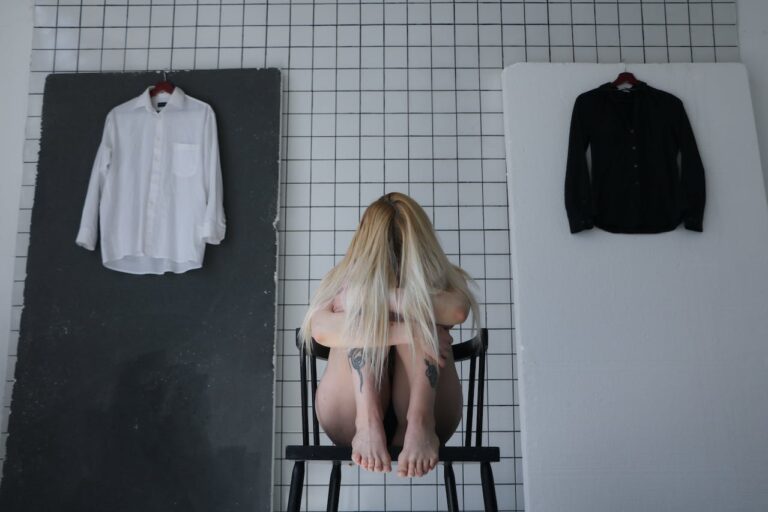There are many women who suffer emotional disorders after childbirth. The vital changes that motherhood entails, the hormonal imbalances of pregnancy, the delicate moment of childbirth or the responsibility of protecting a totally defenseless baby, can make the experience of being a mother becomes a bitter pill dominated by anguish and sadness.
Postpartum anxiety is a very common but quite unknown disorder, since most of the emotional disorders that occur after giving birth are usually included in the more well-known postpartum. However, postpartum anxiety is very different from depression and is fundamentally motivated by an excess of responsibility. The responsibility of being a mother.
What is postpartum anxiety?
Postpartum anxiety presents the same symptoms as any other anxiety disorder that is, sweating, shortness of breath, headache, rapid heartbeat, dizziness, tingling, etc. But above all, postpartum anxiety is characterized by excessive worry and anguish. Sometimes it can be accompanied by obsessive-compulsive disorder, with repetitive movements and recurring ideas.
The reality is that many women can be overwhelmed by the situation of having a baby in their care, under their responsibility, and they do not feel safe or capable of guaranteeing their well-being. It is an anxiety that appears above all in women who have previously suffered from anxiety disorders , as well as in those who feel solely responsible for their baby due to a lack of involvement from their partner.
If in postpartum depression we have seen how sadness takes over the mother, in anxiety agitation, nervousness, worry, anguish, and disorientation predominate. Many women with postpartum anxiety are even afraid of hurting their baby because they feel they have lost control of their thoughts about it.
Why do you have postpartum anxiety?
It is difficult to determine the causes of anxiety disorders, generally it is a question of several factors that, when united, explode in an emotional overflow that instead of being a specific moment, lengthens in time. And this is not the time to delve into the reasons, but rather how to solve this problem as soon as possible to improve the quality of life of the mother, the baby and the whole family.
Generally, it is an excess of worry and fear. This postpartum anxiety affects especially new mothers who fear not doing it right or not knowing how to do it. Here appears the most common reason for anxiety disorders, whether or not they are related to motherhood: self-demand or excessive perfectionism.
Another thread to pull to untangle the skein of confusion that your mind has become is insecurity. It is normal to feel insecure in the face of the most complicated work you are going to do in your life, which is caring for and educating a baby, guaranteeing her safety and her physical and emotional well-being throughout her development. It is a daunting task, how can you not have doubts?
We can continue with the feeling of guilt for not being able to cover everything. Now that you have had your baby, it becomes your priority and you see how the rest of the areas of your life are reduced; or at least you don’t pay as much attention to them. Let go of the need to do everything by yourself, let go of the image that they sell us of super women capable of waking up smiling, taking care of their baby, going to work, doing housework, continuing to take care of the baby, going to the gym to recover their figure. After the birth, to stay with friends to share confidences and visit the family.
The normal worry about the arrival of the baby, of a baby that needs specific care and facing a task that you have never done before, adds pressure to your mind. Thoughts take control, become obsessive and intrusive and end up becoming those distorted thoughts that in turn distort everything around you.
Dealing with these kinds of thoughts is one of the hardest parts of an anxiety disorder. Do not hesitate to ask for psychological help, because at some point you will have to understand and accept that thoughts are just that, thoughts, ideas, and that many times they are not related to reality. Did you know that thoughts are neither true nor false, but useful or useless? Well, this is explained to you in depth in a psychological therapy and so you can manage them more easily.
What to do with postpartum anxiety: treatment?
Thus, postpartum anxiety is a very distressing disorder that needs treatment as soon as possible to ensure the short- and long-term well-being of both mother and baby.
Postpartum anxiety cannot be cured without a psychological treatment that teaches us to transform negative automatic thoughts into more adaptive and productive ones, in addition to modifying our behavior and managing our emotions. The social pressure to which mothers are subjected and the need to be super women is also something that we must overcome as soon as possible.
In any case, the situation or the moment of the arrival of the baby must be taken into account. Factors such as the economic or employment situation of the parents, the specific moment that the couple is living and the family support that they have will be decisive in taking on motherhood in a more relaxed way or with great pressure.
Tips to reduce anxiety after childbirth
Surely you are looking for tips to reduce that postpartum anxiety. Surely you are looking for some guidelines to follow to stop feeling that you have lost control. Unfortunately, there is no instruction manual on how to carry maternity, because each person needs different things.
What we can advise you is, once again, to go to therapy to learn to manage anxiety and normalize all those emotions that you are feeling and that you refuse to feel or that you think you have no right to feel. But in addition to going to the psychologist, there are some things that you could take into account, such as letting yourself be carried away by your instinct when it comes to taking care of your baby. If you want to listen to someone’s advice, try to make it one person so that you don’t get a thousand different messages.
It is tempting to advise you to exercise eat healthy and live an orderly life, but can you take care of that right now? Probably not. And that’s okay, because you don’t have to be perfect. All the usual tips to overcome would be great for postpartum anxiety, but the special circumstances you are experiencing make it more difficult for you to take time and desire to meditate, to walk in nature, to read or to meet your friends.
Now we are going to work on the most stressful aspect. You can’t do it all, you’re not going to do it all, you don’t have superpowers. So you better prioritize and the luck is that for the first time in your life the priority is clear: your baby. For now, everything else is secondary.
But let’s be careful with this priority thing. Your baby is your priority but not your only interest. If the most important thing for you is to take care of that baby and that it grow up healthy and happy, do you know the first thing you need to do it? May the person who takes care of him also be healthy and happy? Do not forget to take care of yourself and also let yourself be taken care of by your partner, your friends or your family.






